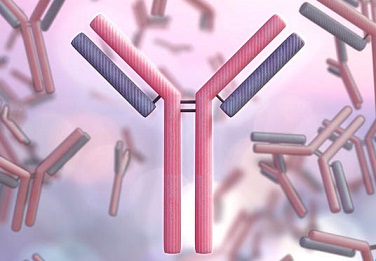Arthritis News: Novel Antibody Targets Interleukin-17A and F For Rheumatoid Arthritis And Inflammatory Bowel Disease - A Promising Breakthrough
Thailand Medical News Team Aug 24, 2023 1 year, 7 months, 6 days, 9 hours, 22 minutes ago
Arthritis News: In the realm of medical advancements, the search for innovative therapies that can effectively combat autoimmune diseases like rheumatoid arthritis (RA) and inflammatory bowel disease (IBD) remains a constant challenge. However, a recent breakthrough has shown promising results in this pursuit. Researchers have unveiled a novel antibody, Ab-IPL-IL-17, which targets a specific amino acid sequence present in both interleukin-17A (IL-17A) and IL-17F, two signaling proteins implicated in the perpetuation of inflammation during the onset and progression of autoimmune diseases. The antibody's remarkable activity and potential for fewer side effects compared to existing biological therapies could mark a turning point in the treatment landscape for conditions such as RA, psoriasis, and IBD.

This groundbreaking discovery, as reported in the Annals of Rheumatic Diseases, stems from the collaborative efforts of Dr Asif Iqbal from the University of Birmingham and Professor Francesco Maione, the Head of ImmunoPharma Lab at the University of Naples Federico II. Their research sheds light on the potential benefits of Ab-IPL-IL-17 for individuals afflicted by RA and IBD.
Central Role of IL-17A and F in Inflammation
IL-17A and IL-17F are pivotal players in the initiation and perpetuation of inflammation, causing significant tissue damage and being implicated in various immune-mediated inflammatory diseases (IMIDs). The researchers embarked on a journey to uncover a specific sequence within these signaling proteins that could be harnessed to combat their deleterious effects. Through meticulous experimentation, they identified a compact sequence of only 20 amino acids, aptly termed nIL-17, that was responsible for IL-17's biological activity across both mice and humans.
Unveiling the Molecular Docking Mechanism
Delving deeper, the study team unraveled the 3D structure of this crucial amino acid sequence. This endeavor allowed them to understand, at an atomic level, how nIL-17 binds to receptors known to trigger inflammatory responses. Their findings demonstrated that this short sequence wielded significant power in activating the inflammatory response, inducing the release of cyto-chemokines - an ensemble of inflammatory molecules responsible for sparking and amplifying inflammation. Astonishingly, nIL-17 exhibited comparable inflammatory activation as full-length IL-17 molecules, with the added effect of driving immune cell migration to a heightened degree.
Birth of Ab-IPL-IL-17: A New Therapeutic Paradigm
Armed with this newfound knowledge, the researchers took a monumental step forward by designing Ab-IPL-IL-17, an antibody engineered to target the nIL-17 sequence. Rigorous evaluation ensued, with cell studies revealing that Ab-IPL-IL-17 possessed potent anti-inflammatory capabilities. It efficiently curbed the production of cyto-chemokines and impeded the migration of white blood cells within inflamed tissues.
Animal studies reinforced the antibody's potential. When compared to existing anti-IL-17 therapies - namely, secukinumab, ixekizumab, and bimekizumab - Ab-IPL-IL-17 emerged as a frontrunner.
Unlike its counterparts, Ab-IPL-IL-17 did not induce unwarranted immune responses, platelet reduction, or an uptick in lymphocyte counts. In murine models
of arthritis, the therapeutic administration of Ab-IPL-IL-17 exhibited efficacy on par with the gold-standard treatment for RA, infliximab. This monumental finding attested to its ability to halt disease progression and trigger resolution, potentially revolutionizing the management of RA.
Translating Bench Discoveries to Bedside Success
In a quest to bridge the gap between laboratory discoveries and real-world applications, the researchers turned to human tissue samples. Tissues donated by individuals with RA and IBD were subjected to proof-of-concept studies, revealing the potential of Ab-IPL-IL-17 to mitigate pathological symptoms. Notably, in RA, the antibody seemed to specifically counteract the pro-inflammatory actions of chronically inflamed fibroblasts within the rheumatoid joint.
Similarly, in IBD cases, Ab-IPL-IL-17 demonstrated the capacity to deplete plasma IL-17A, hinting at its potential to ameliorate pathological pro-inflammatory changes in the disease.
Promising Future Ahead
With the successful development and validation of Ab-IPL-IL-17, a new chapter covered in various
Arthritis News coverages
, is poised to unfold in the treatment of IL-17-mediated diseases. The groundbreaking research of Dr Asif Iqbal and Professor Francesco Maione underscores the significance of understanding molecular mechanisms in identifying therapeutic targets. The antibody's potential to significantly reduce the clinical manifestations of arthritis and inflammatory bowel disease showcases a potential game-changer in the treatment paradigm for autoimmune conditions.
As the research continues to gain momentum, the next crucial step involves large-scale clinical evaluations of Ab-IPL-IL-17 in patients grappling with immune-mediated inflammatory diseases (IMIDs). This collaborative effort may usher in a new era of precision medicine, where treatments are tailored to target specific molecular sequences, minimizing side effects and maximizing therapeutic efficacy. The journey from laboratory exploration to bedside application demonstrates the remarkable potential of interdisciplinary research to transform lives and conquer the challenges posed by complex autoimmune disorders. The dawn of Ab-IPL-IL-17 signifies not only a beacon of hope for those affected by IMIDs but also a testament to the relentless pursuit of scientific excellence and innovative solutions to unmet medical needs.
The study findings were published in the peer reviewed journal: Annals of the Rheumatic Diseases.
https://ard.bmj.com/content/early/2023/08/10/ard-2023-224479
For the latest
Arthritis News, keep on logging to Thailand Medical News.
